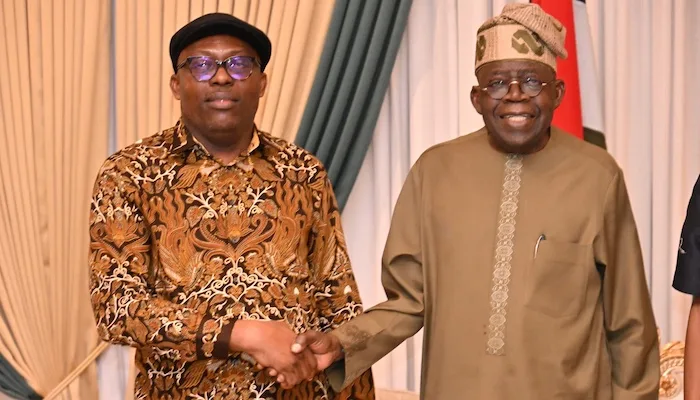President Bola Tinubu has announced the end of the state of emergency in Rivers State, which was imposed six months ago.
In a statement personally signed on Wednesday, Tinubu said intelligence reports indicated a renewed spirit of cooperation and commitment among political stakeholders in the state, creating a conducive environment for the restoration of democratic governance.
“From the intelligence available to me, there is now a new spirit of understanding, robust readiness, and potent enthusiasm among all stakeholders in Rivers State for an immediate return to democratic governance,” the President said. “This is undoubtedly a welcome development and a significant milestone for our country.”
He added: “I therefore see no reason for the state of emergency to persist a day longer than the six months initially declared. It gives me great pleasure to announce that the emergency in Rivers State shall end at midnight today.”
Effective September 18, 2025, Governor Siminalayi Fubara, Deputy Governor Ngozi Nma Odu, Speaker Martins Amaewhule, and members of the Rivers State House of Assembly are to resume duties in their respective offices.
Tinubu explained that the emergency rule became necessary due to what he described as a “total paralysis of governance” in Rivers State, where a deep political rift between the executive and legislative arms had rendered the state ungovernable.
“The State House of Assembly was split. Four members aligned with the governor, while 27 backed the Speaker and opposed the governor,” he recounted. “As a result, the governor could not present an Appropriation Bill, which effectively crippled the state’s finances and operations.”
He also noted that critical infrastructure, including oil pipelines, was left vulnerable to vandalism amid the political impasse.
The President said his efforts — along with those of other well-meaning Nigerians — to broker peace failed, as both factions remained entrenched. Even the Supreme Court, in one of its rulings, affirmed that effective governance no longer existed in the state.
“In light of the deteriorating situation, I was constitutionally obligated to invoke Section 305 of the 1999 Constitution (as amended) and proclaim a state of emergency,” Tinubu said.
Under the emergency measures, the offices of the Governor, Deputy Governor, and State Assembly were suspended for an initial six-month period, which ends today, September 17, 2025.
He commended the National Assembly for promptly approving the proclamation and supporting efforts to restore order. He also expressed appreciation to the people and traditional leaders of Rivers State for their patience and cooperation during the emergency period.
Tinubu acknowledged there were dissenting voices and legal challenges — over 40 cases filed across courts in Abuja, Port Harcourt, and Yenagoa — seeking to overturn the emergency rule.
“Such dissent is expected in a democracy,” he said. “But it would have been a colossal failure on my part as President not to act. The constitutional power to declare a state of emergency exists precisely to address such dire situations and restore peace and order.”
He stressed the importance of synergy between the executive and legislative arms at all levels of government for democracy to thrive.
“The people who entrusted us with power expect the dividends of democracy. That expectation cannot be met in an atmosphere of chaos, insecurity, and political brinkmanship,” the President concluded.


